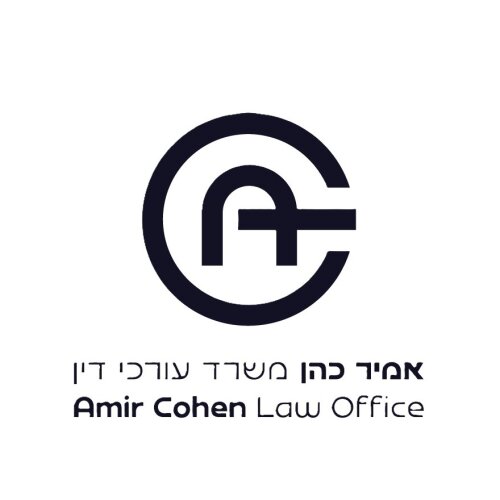Best Divorce & Separation Lawyers in Israel
Share your needs with us, get contacted by law firms.
Free. Takes 2 min.
Free Guide to Hiring a Family Lawyer
Or refine your search by selecting a city:
List of the best lawyers in Israel
About Divorce & Separation Law in Israel
In Israel, divorce and separation are governed by a complex interplay of religious and civil laws. The process is primarily influenced by religious courts, as Israel lacks a civil marriage mechanism. Jewish couples in Israel must divorce through the Rabbinical Court, according to Jewish law (Halacha). Similar jurisdictional rules apply to other religious groups, such as Muslims and Christians. Separation, on the other hand, can be formalized without involvement from religious courts, allowing couples to live apart without dissolving the marriage legally.
Why You May Need a Lawyer
Navigating divorce and separation in Israel can be intricate due to the interplay of religious and civil laws. Common situations requiring legal assistance include:
- Disagreements on Divorce Terms: Couples often seek lawyers to handle disputes regarding asset division, child custody, and spousal support.
- Religious Complications: Legal expertise is required to comply with religious court proceedings and meet the specific requirements of religious law.
- Protection of Rights: Lawyers can help individuals understand their rights and ensure these are protected throughout the separation process.
- International Issues: Cases involving non-resident spouses or international elements might require specialized legal advice to manage jurisdictional complexities.
Local Laws Overview
The unique nature of divorce and separation in Israel means that several key aspects of local laws are particularly relevant:
- Religious Courts: Divorce must be processed through religious courts, which have exclusive jurisdiction based on the couple's religion.
- Spousal Rights: Property acquired during marriage is typically divided equally, unless different arrangements were legally agreed upon.
- Child Custody: Decisions are made in the best interest of the child, with considerations for their age, health, and parents' ability to provide care.
- Alimony: Post-divorce financial support is determined by several factors, including the duration of the marriage and each spouse's financial status.
Frequently Asked Questions
How is divorce initiated in Israel?
One of the spouses must file a petition for divorce with the relevant religious court. This petition must include grounds for divorce, and if mutually agreed upon, the process can be expedited.
What are the accepted grounds for divorce in Israeli Religious Courts?
Grounds vary by religion but may include adultery, abandonment, or irreconcilable differences under Jewish law, while other religions may have additional grounds.
Can both spouses share child custody?
Yes, shared custody is possible and decided based on the child's best interests. Courts evaluate numerous factors to determine the best custody arrangement.
How are assets divided upon divorce?
Assets acquired during the marriage are generally divided equally unless a prenuptial or postnuptial agreement states otherwise.
Is legal separation recognized in Israel?
Legal separation is not recognized as a formal status, but couples can live apart and negotiate arrangements like custody and property division independently.
What happens if a spouse refuses to grant a divorce?
This situation leads to a contested divorce, where the refusing party may face legal actions including potential sanctions by religious courts to encourage agreement.
Are prenuptial agreements enforceable in Israel?
Yes, if properly drafted and validated by a legal authority, prenuptial agreements are enforceable and can dictate the distribution of assets upon divorce.
Can foreign marriages be dissolved in Israel?
Israeli law recognizes foreign marriages, and they can be dissolved in Israel, though the process might involve additional legal steps depending on the couple's citizenship and residency status.
Do Israeli divorce laws apply to non-Jewish residents?
Non-Jewish couples are subject to their respective religious courts unless civil jurisdiction is applicable due to mutual agreement or lack of religious alternatives.
What role does mediation play in divorce proceedings?
Mediation is encouraged as a means to resolve disputes amicably, often leading to mutually agreed settlements outside of court.
Additional Resources
Several resources can provide valuable support for those seeking legal advice in divorce and separation matters:
- Ministry of Justice: Offers guidance on legal rights and procedures.
- The Rabbinical Court System: Provides information on religious court procedures for Jewish couples.
- Family Court Assistance Units: Offer support services in family-related legal matters.
- Private Family Law Practices: Many law firms specialize in family law, offering tailored advice for divorce and separation.
Next Steps
If you need legal assistance with divorce and separation in Israel, consider the following steps:
- Consult a Lawyer: Seek guidance from a specialized family law attorney to understand your situation and legal options.
- Document Financial and Personal Matters: Prepare relevant information about shared assets, child arrangements, and other personal considerations.
- Explore Mediation: Consider mediation to resolve differences amicably, potentially saving time and money.
- Seek Emotional Support: Divorce can be emotionally challenging; consider counseling or support groups to navigate the transition.
Lawzana helps you find the best lawyers and law firms in Israel through a curated and pre-screened list of qualified legal professionals. Our platform offers rankings and detailed profiles of attorneys and law firms, allowing you to compare based on practice areas, including Divorce & Separation, experience, and client feedback.
Each profile includes a description of the firm's areas of practice, client reviews, team members and partners, year of establishment, spoken languages, office locations, contact information, social media presence, and any published articles or resources. Most firms on our platform speak English and are experienced in both local and international legal matters.
Get a quote from top-rated law firms in Israel — quickly, securely, and without unnecessary hassle.
Disclaimer:
The information provided on this page is for general informational purposes only and does not constitute legal advice. While we strive to ensure the accuracy and relevance of the content, legal information may change over time, and interpretations of the law can vary. You should always consult with a qualified legal professional for advice specific to your situation.
We disclaim all liability for actions taken or not taken based on the content of this page. If you believe any information is incorrect or outdated, please contact us, and we will review and update it where appropriate.
Browse divorce & separation law firms by city in Israel
Refine your search by selecting a city.

















